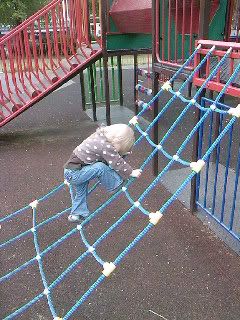Seraph wrote:What exactly is so special about the US - UK relationship? The US made Great Britain repay every cent - plus interest - that it had spent to help its 'special' friend during WWII.
I'm not sure that's true. But, even so, so what? Before World War 2 the UK was one of most powerful, if not the most powerful, country on the planet and was siphoning treasure from colonies all over the world:
http://www.the-map-as-history.com/demos ... /index.php And, nevertheless, being a friend doesn't mean you pick up the tab for everything.
Seraph wrote:
The 'favour' was not reciprocated in Korea or Vietnam.
What favor in Korea and Vietnam? Korea was a United Nations police action, and the United States did not get "repaid" for its contributions either.
Vietnam was part of French Indochina, which the French had been fighting for since the 17th century, until they finally got China to accept defeat and give up their claim to Vietnam in 1885 after an almost 50 year war, and the French finally left in about 1956 when they got their asses kicked at Dien Bien Phu.
After WW2 Franklin D. Roosevelt, Winston Churchill and Joseph Stalin decided what would happen to post-war Vietnam at Potsdam. They had agreed that the country would be divided into two, the northern half under the control of the Chinese and the southern half under the British. After WW2 France attempted to re-establish control over Vietnam. In January 1946, Britain agreed to remove her troops and later that year, China left Vietnam in exchange for a promise from France that she would give up her rights to territory in China. The French kept pursuing its claims in the South and in the late 40s and early 50s, the French were fighting the Vietminh and Ho Chi Minh. After the French loss at Dien Bien Phu, they decided to pull out of Vietnam.
Then foreign ministers of the United States, the Soviet Union, Britain and France decided to meet in Geneva to see if they could bring about a peaceful solution to the conflicts in Korea and Vietnam. After much negotiation the following was agreed: (1) Vietnam would be divided at the 17th parallel; (2) North Vietnam would be ruled by Ho Chi Minh; (3) South Vietnam would be ruled by Ngo Dinh Diem, a strong opponent of communism; (4) French troops would withdraw from Vietnam; (5) the Vietminh would withdraw from South Vietnam; (6) the Vietnamese could freely choose to live in the North or the South; and (7) a General Election for the whole of Vietnam would be held before July, 1956, under the supervision of an international commission.
After that brief period of involvement, as a replacement for French colonial rule in 1945 or 46, the Britain did not fight in Vietnam.



